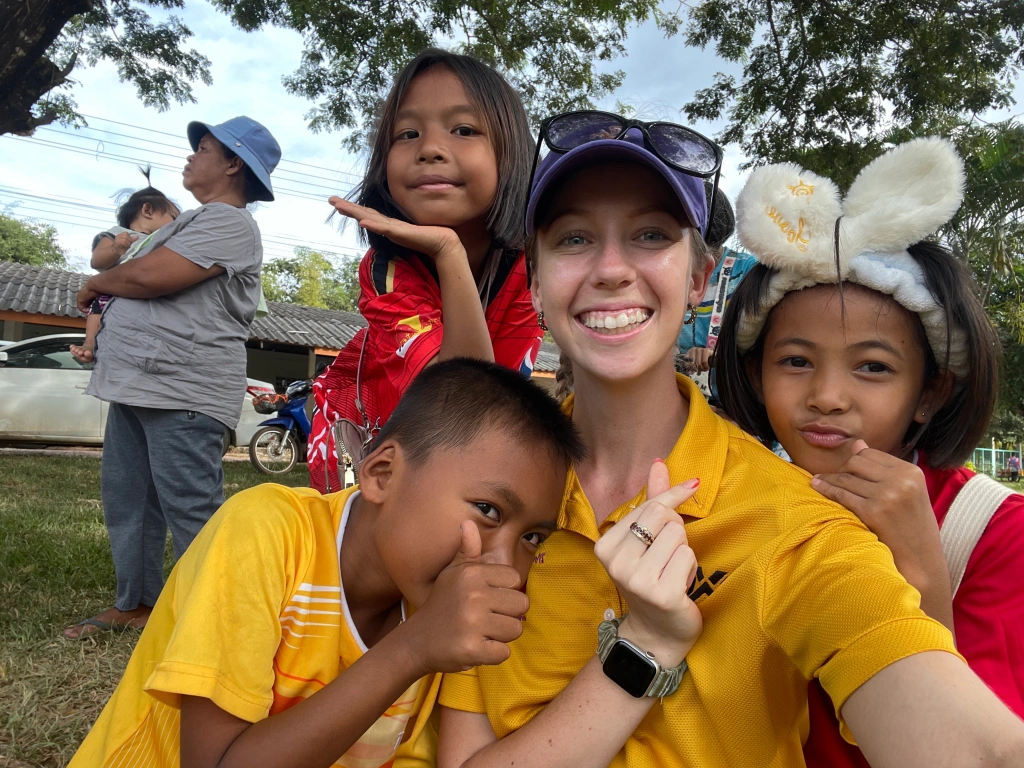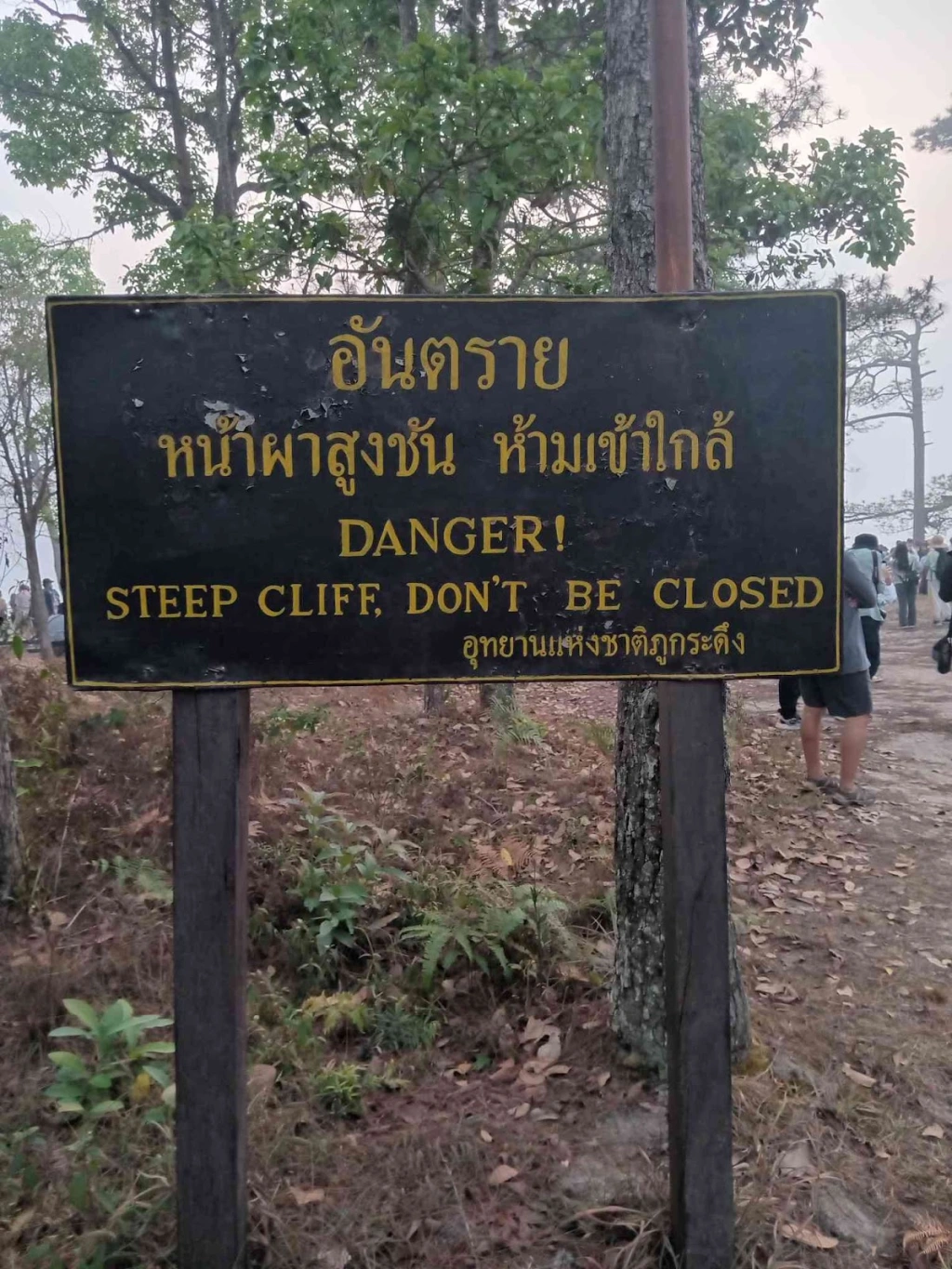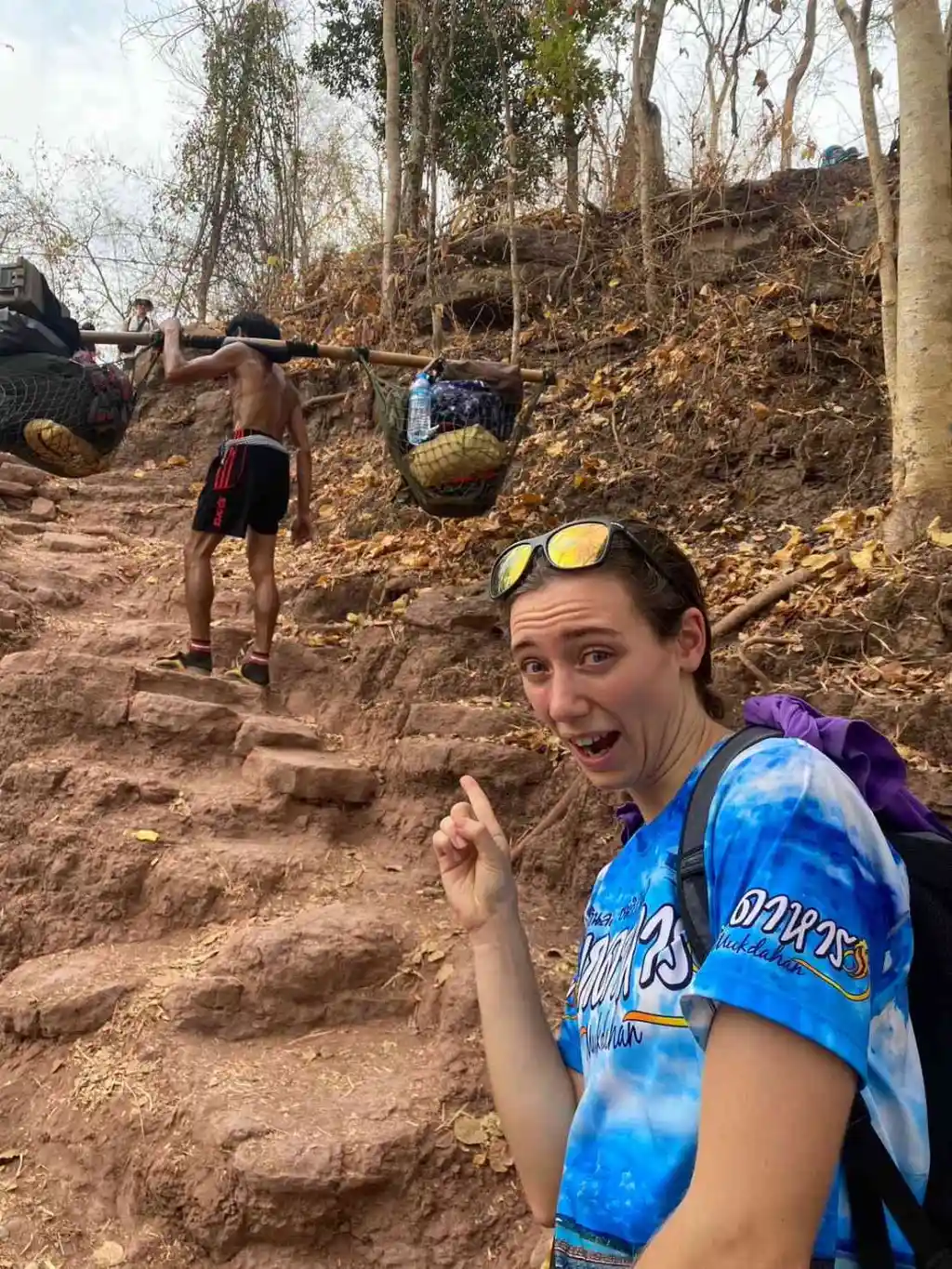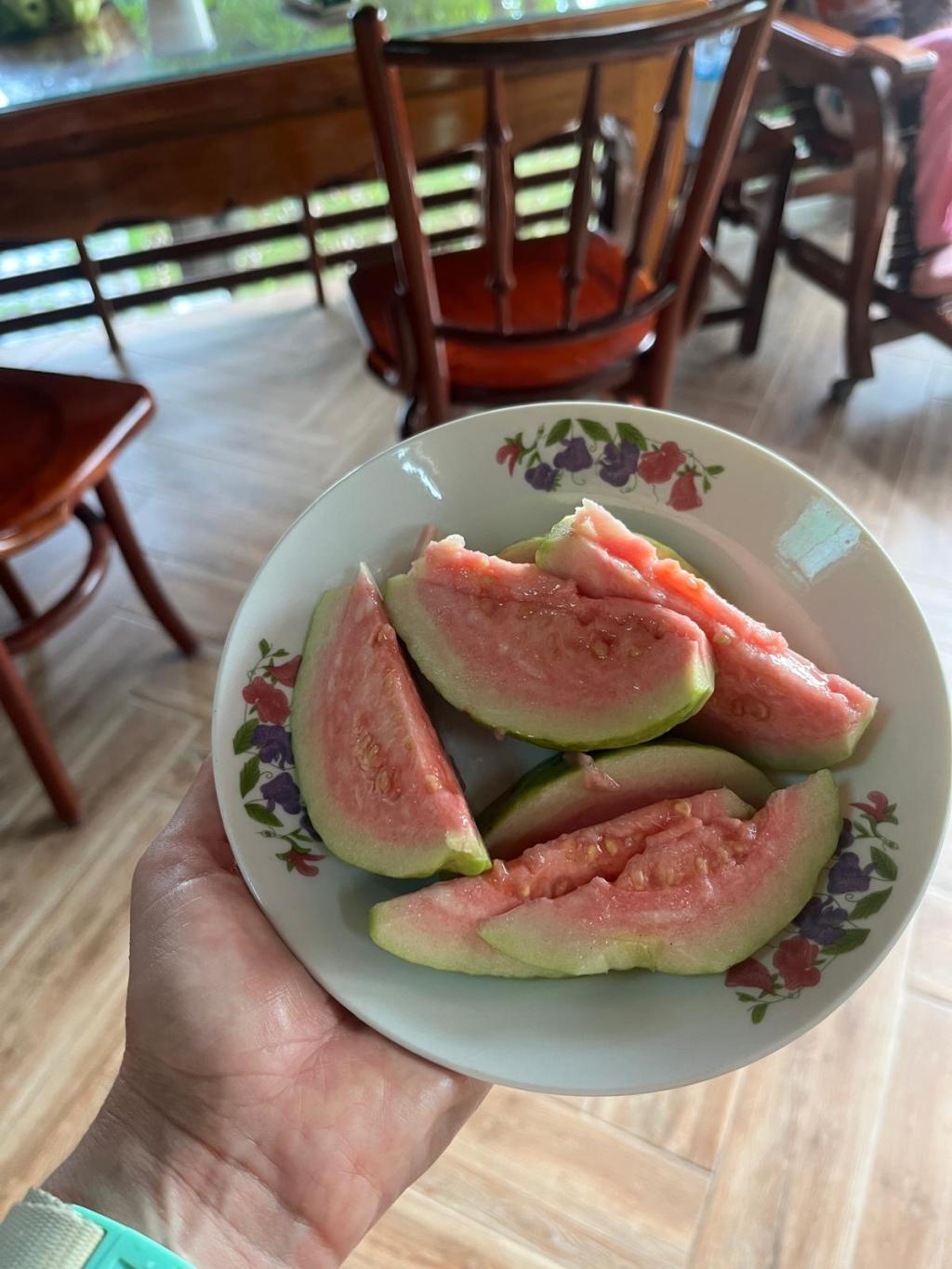
Kayla Kawalec, YinD 132
To Mee:
I have to write this one first, because there’s so much I want to say to you, and have always wanted to say to you, but could never put it as eloquently as I wanted to in a language I barely had the taste of on my tongue. Although, even despite that, I think you already know everything I’ll say in this letter. We only lived together for 8 weeks, we are separated by at least 40 years in age, and we don’t share the same first language, but somehow you always knew what I was going to say before I’d say it. I’d struggle with a tedious, butchered sentence in Thai that couldn’t have made much sense to a fluent speaker, but before I could get halfway through you already knew what I was trying to say. Sometimes, you’d guess before I could even open my mouth.
I think it’s because you and I are one in the same, mee. I realized it the day I stumbled down the stairs, face buried in my phone, missing the last two steps and crashing loudly onto the floor. Because when I looked up at you, worried that my constant clumsiness had disturbed you, you were just laughing and laughing. We laughed so hard together and then you proceeded to retell the story to everyone we came into contact with over the next 48 hours, an inside joke no one ever seemed to think was as funny as we did.
Our humor is the same, you’re forgetful about little things like I am, you laugh at my sarcasm like few Thai people I’ve met. From the day I stepped into your home with the language skills of a kindergartener (possibly worse) you immediately accepted me as your daughter. I’m sure many of my fellow trainees felt similarly about their host families because it’s just the Thai way to be open and loving, to share what they have and be overprotective. But it was more than that. It wasn’t just the way you worried about my safety, calling to make sure I’d be home before dark every night; it was when you let me go on a run in our neighborhood alone for the first time. It wasn’t just all the meals you made me, lovingly, always trying to vary the menu and bring me things you thought I’d like; it’s that the first thing you told my teachers when you met them was that I was so easy to cook for and that “Kayla eats everything” (I was hoping you’d lead by telling them about my Thai skills, but I know the food thing means more to you anyway).
It wasn’t just the ridiculously oversized stuffed bear you gave me my first week and then wanted me to pack away to site (an impossible feat, this thing was the size of my bed); it was that when we found out everyone was being sent home and that I wouldn’t get to see that site after all you told me that you weren’t going to send it to me. You would bring it in person the moment I landed back at site, whenever that may be. All of this and the countless other memories we shared over the 57 days we lived together made me realize that you didn’t just love me the way a Thai host mom loves her host daughter, you loved me for me, and I feel the same.

To the Peace Corps Thailand staff and aa-jaans (teachers):
There isn’t much I can say here that I haven’t already told you, or tried to tell you in my fast-paced, high-toned, often jumbled Thai (paa-saa khun Kayla, as you all affectionately call it), but I needed to put words to the page anyway. I could write a whole separate article on the talent, poise, and utter kwaam dii (goodness) you all possess. I remember coming into Pre-Service Training (PST) knowing only that I’d heard through the Peace Corps grapevine that the PC Thailand staff is incredible, absolutely the best of the best. This was proven again and again during the short 10 weeks of training I was honored to work with you, I was constantly in awe. But that’s a different story than I want to tell here because you all went so above and beyond the language, technical, and cultural training. I want to recall how you were there for us on a different level, our misfit group 132.
You went through so much more with us than anyone ever could have imagined, how could we imagine any of this? I’m sure in a normal PST cycle plenty of tears are shed, arms are squeezed, and reassurance is doled out with the frequency of Advil, minds and bodies both exhausted from the long weeks, but our cohort really took the cake this year. On a day already brimming with emotion, anxiety, and insecurity – the day of our language proficiency interviews – we received news much worse than pulling a difficult discussion topic card. All 7,300+ Peace Corps volunteers and trainees were being sent home, effective immediately, no flourish, no fanfare, just an email read aloud to a stunned collection of us trainees and all of you.
Some had to come out of their interviews to the news, some had to immediately go in after finding out. You all took it in stride. Wiping tears, encouraging us to continue on with the interviews, assuring us that we’d still need the grade when we came back. That we would come back. Tissues were handed out during my interview, “it’s okay to take a second to cry if you need it”. You held our hands, let us leave wet marks on your shoulders, distracted us with games and jokes. You went so far past your role as teachers; you let us lean on you as friends. Without skipping a beat, equally as worn out from the news and the day as us, you stayed up late that night to make flower arrangements and create a gorgeous stage for our swearing in (and historic, simultaneous close of service) ceremonies. Thank you, thank you with the force of words I don’t know in English or in Thai, for everything you’ve done for us. Until we meet again.

To the site I never got to see:
I wish there was more to say here, but we learned that we were going home before we got the chance to learn where we were supposed to be heading to next. All we know is our general area and a promise that it’ll be there waiting for us when (if?) we return. Because that’s the thing, the need is still there. COVID-19 cleared shelves of toilet paper, confined the most extroverted people to their living room couches, uprooted, at a minimum, 7,300+ people from across the world and sent them back to homes much different than they left, but the one thing it can’t change is the need for help. The communities that asked for an outside perspective on how they can make themselves function better are still there. The schools that need some assistance kickstarting English in their classrooms because they don’t have that resource available to them are still there. I don’t know much about the community I was meant to go to; it’s hard to think about it in a concrete sense until I have more stability under my feet, but what I do know is that they asked for me to be there. Not me specifically, but they asked for help. They told the Peace Corps, this is what we need and the type of person we need it from, can you lend a hand? That need didn’t disappear when country borders started closing and people started sheltering in place. It won’t go away in a month or two or even 6. So the most I can do for you now is promise that I’ll be there, somehow, to do the job I promised to do, and I can guarantee I know a whole group of people who feel the same way.

To the cohort that barely got to be a cohort, 132:
We always knew there was something different about our group. The resource volunteers who came to see us, our aa-jaans, and Peace Corps staff told us so. “You all are so chill”, “this cohort is much different than any I’ve previously worked with”, “your group is just very unique”. 69 people completing an entire 2 years of service in 69 days and becoming the final group of Peace Corps trainees worldwide to be sworn in before a global evacuation is unique as heck if you ask me. Every Peace Corps cohort is bound to be special; each person coming in with a different story at a different stage in life, but 132 ran the gamut. A serial skydiver, a former flight attendant, a grandfather, more polyglots than I can count, an EMT, a student of neuroscience who dabbled in real estate and speaks roughly 4 languages and counting, and I’ve barely scratched the surface. I could list accomplishments and attributes spanning the cohort, but in the end none of that really mattered because when it was all laid bare it was just us and our resilience remaining.
The day we got the news of the evacuation I watched as a group of powerhouses in every subject, talent, skill, and aspect imaginable was stripped down by the unexpected. If we learned anything from our 10 weeks of training it was that you have to not just expect, but accept, the unexpected. “It might as well be expected” they told us over and over, “because nothing will ever turn out the way you think it will.” . This mantra is at the core of the Peace Corps experience. Getting sent home before we got to our new homes isn’t the way we thought it would turn out at all. But the silver lining of the news that could never come at a good time, is that it did. We were with each other. The person who shared their Thai iced tea with you at the hotel the first day was holding your hand, your homestay neighbor (who also happens to somehow be related to you through a convoluted Thai host family lineage) rubbed your back and gave you a knowing look, your practicum school partner texted you when you landed (too soon) back on American soil to check in.
I’m proud of us not because of our accomplishments before training or even the growth and promise we held after, the greatness still to come at our sites. I’m proud because we were there for each other through a test of our resilience bigger than the Peace Corps could simulate as a training exercise.
I’m proud because I know we’re going to make it through this and come out of the other side stronger.
I know because I’ve already seen us do it.
Stay tuned for Kayla’s future contributions.





Share your thoughts